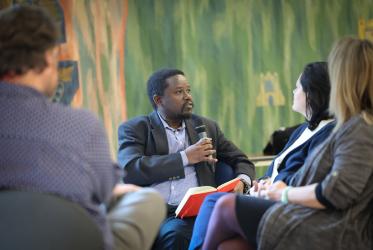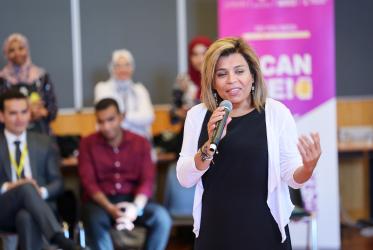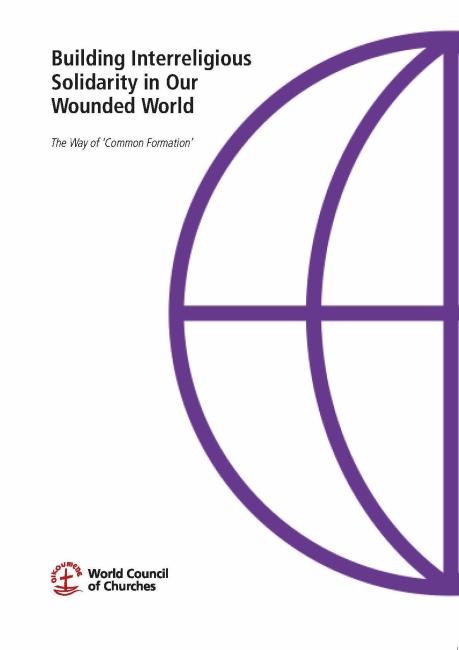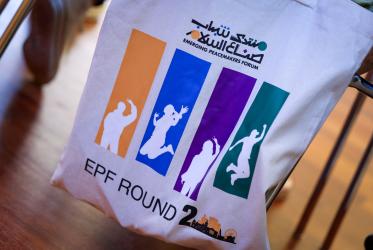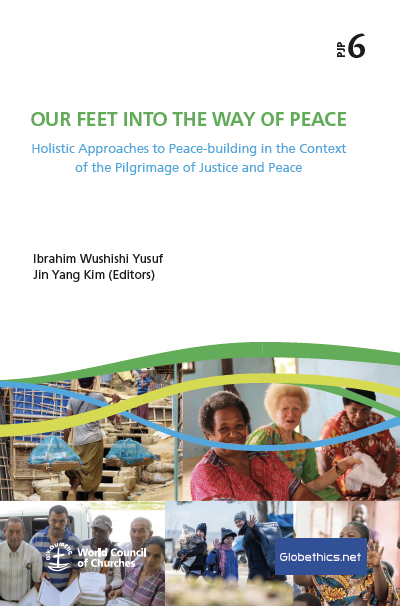Displaying 1 - 20 of 69
Voice of churches vital during UN women’s rights talks
28 March 2024
A Guide for Churches on the Prevention of Obstetric Fistula
26 October 2023
At peace conference, WCC focuses on overcoming racism
26 October 2023
ACT Alliance general secretary: “equity is not negotiable”
26 September 2023
HIV and AIDS Civil Society Networks and the Faith Sector
Lessons Learnt from Strategic Engagement in India, Dominican Republic, Indonesia, and Jamaica
31 January 2023
Seek Peace and Pursue It: PJP Series 4
Reflections on the Pilgrimage of Justice and Peace in Europe
22 August 2022
Strengthening Christian Perspectives on Human Dignity and Human Rights
Perspectives from an International Consultative Process
19 August 2022
Our Feet into the Way of Peace: PJP Series 6
Holistic Approaches to Peace-building in the Context of the Pilgrimage of Justice and Peace
19 August 2022
Hate Speech and Whiteness: PJP Series 5
Theological Reflections on the Journey Toward Racial Justice
19 August 2022
Towards an Ecumenical Theology of Companionship: PJP Series 3
A Study Document for the Ecumenical Pilgrimage of Justice and Peace
19 August 2022



